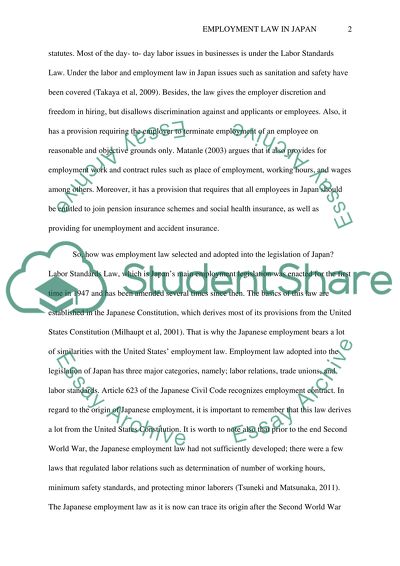Cite this document
(“Employment Law in Japan Essay Example | Topics and Well Written Essays - 1000 words”, n.d.)
Employment Law in Japan Essay Example | Topics and Well Written Essays - 1000 words. Retrieved from https://studentshare.org/law/1444016-commercial-law-asia
Employment Law in Japan Essay Example | Topics and Well Written Essays - 1000 words. Retrieved from https://studentshare.org/law/1444016-commercial-law-asia
(Employment Law in Japan Essay Example | Topics and Well Written Essays - 1000 Words)
Employment Law in Japan Essay Example | Topics and Well Written Essays - 1000 Words. https://studentshare.org/law/1444016-commercial-law-asia.
Employment Law in Japan Essay Example | Topics and Well Written Essays - 1000 Words. https://studentshare.org/law/1444016-commercial-law-asia.
“Employment Law in Japan Essay Example | Topics and Well Written Essays - 1000 Words”, n.d. https://studentshare.org/law/1444016-commercial-law-asia.


